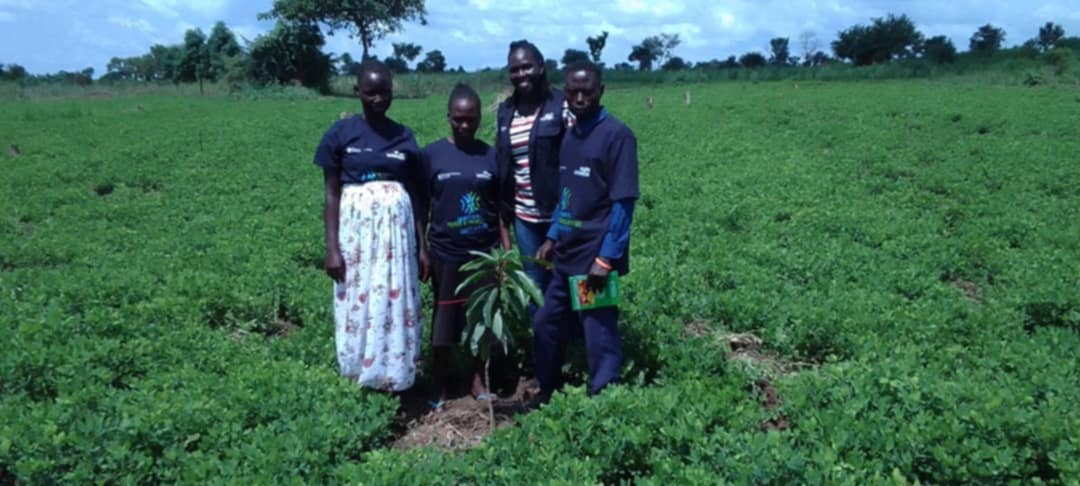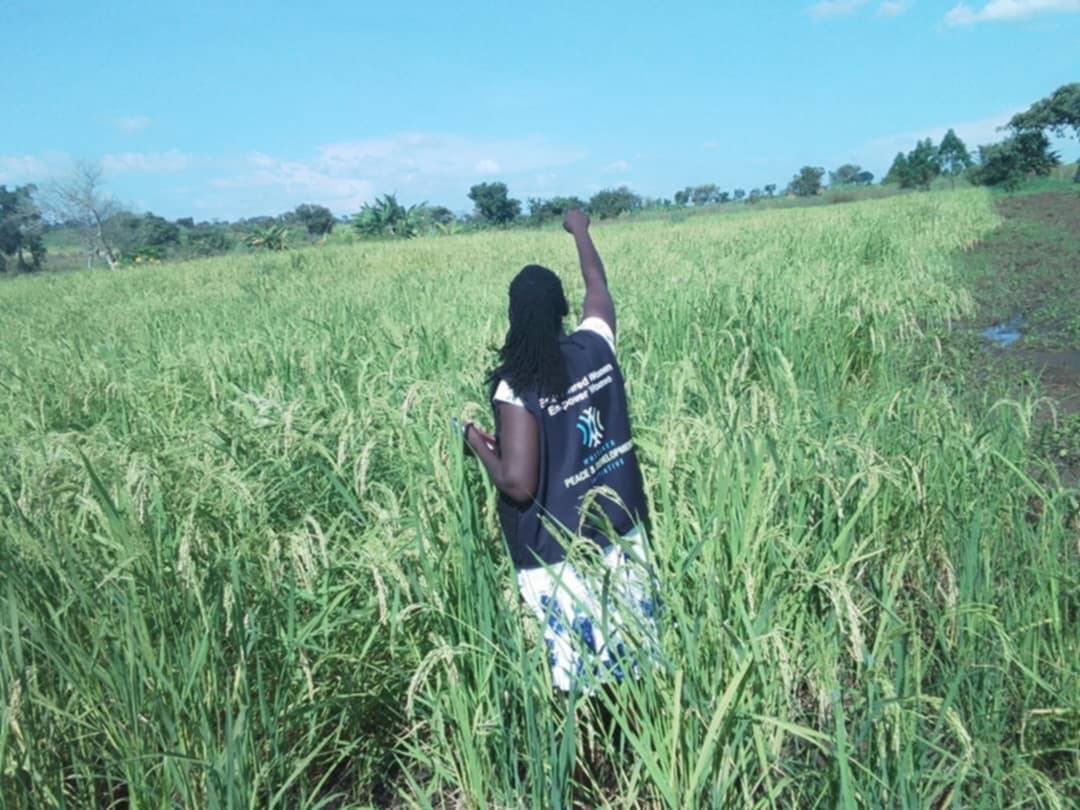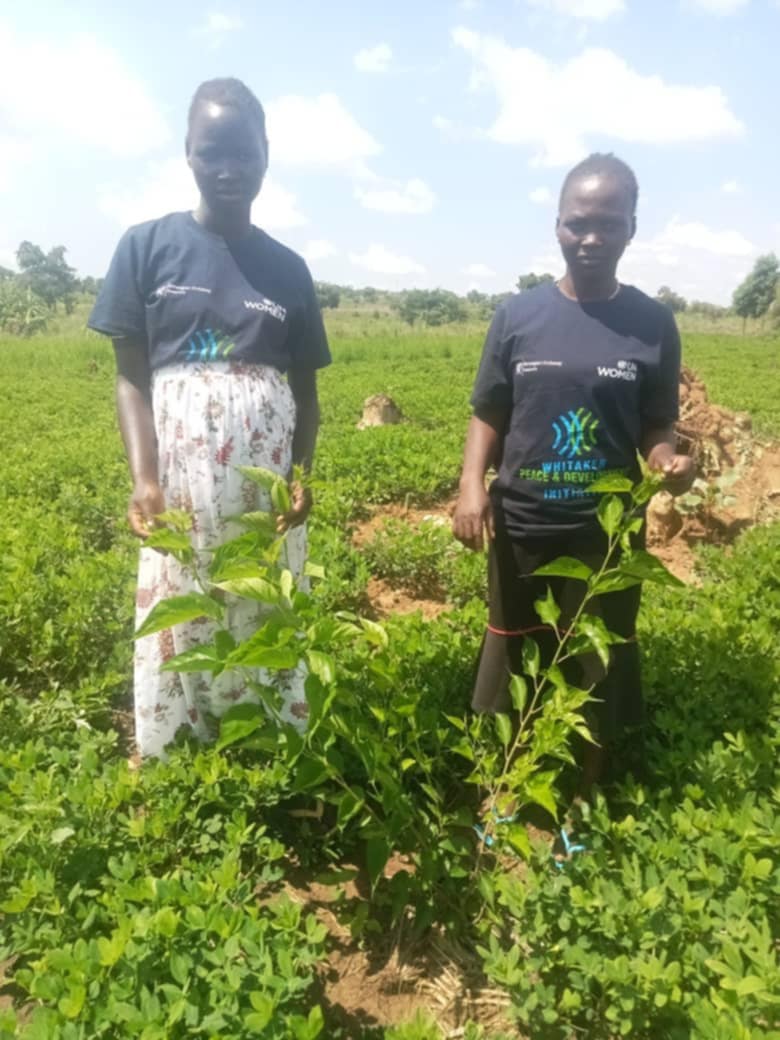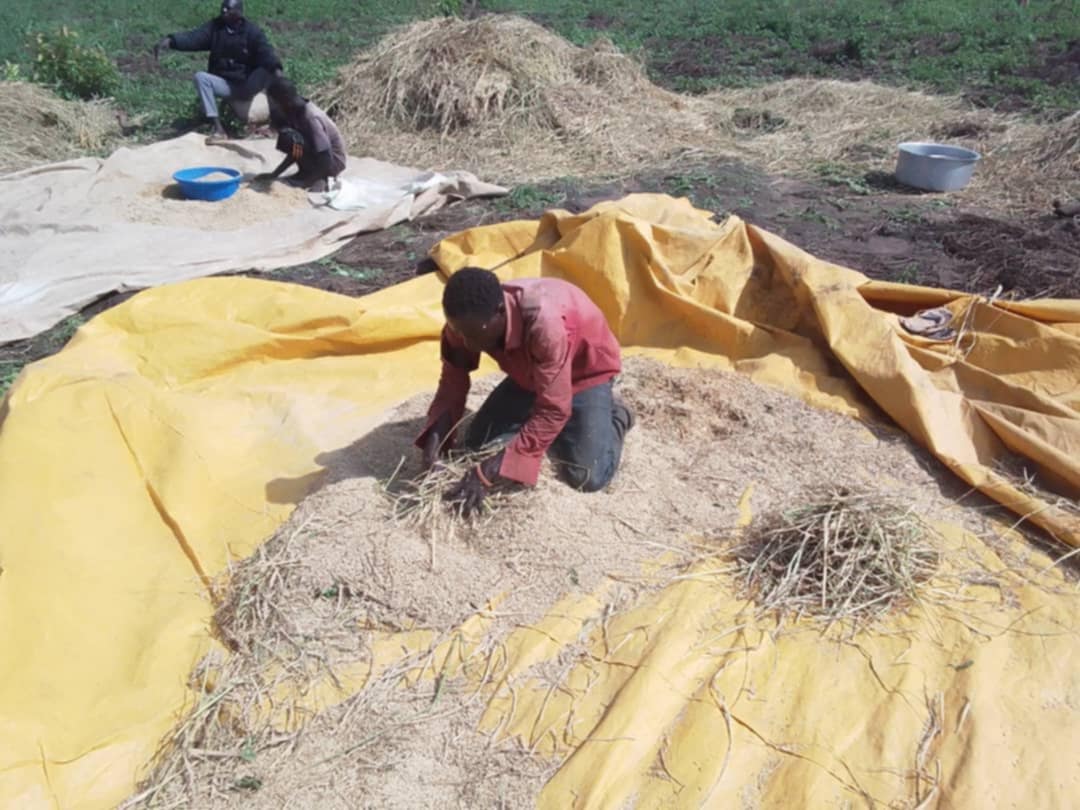March 14, 2025 – A crucial aspect of WPDI’s approach to sustainable peacebuilding is to encourage the development of climate-resilient enterprises. Our idea is to help members of underprivileged communities reap the multiple benefits that such ventures can generate both in terms of economic empowerment and environmental sustainability. It is our hope that the self-reliance and autonomy that they acquire will translate into increased resilience and vibrancy for their communities.

A transformative journey
In this spirit, we recently helped the Amanzora Farmers Group in the Adjumani District of Uganda to embark on a transformative agroforestry journey following intensive Climate-Smart Agriculture (CSA) training at Delight Farm, which included a specialized session for five WPDI Youth Peacemakers. With technical backstopping from WPDI staff, the group has successfully established a thriving 5-acre orchard that integrates improved mango trees with high-value medicinal species such as prunus African, Kigelia Africana, mulberry, cinnamon, Warbugia ugandensis, and soursop. This initiative enhances soil fertility, prevents erosion, and boosts carbon sequestration—laying a strong foundation for climate resilience while opening avenues for long-term income and improved household nutrition.

Beyond the impressive tree planting initiative, the farmers enthusiastically learned and applied innovative intercropping techniques by planting groundnuts and rice within the orchard. This strategic adaptation not only diversifies income streams and minimizes risks but also enriches the soil with vital nutrients. The successful harvest of these intercrops is a testament to the project’s potential to deliver consistent short-term returns alongside the enduring benefits of agroforestry.

Community impact
The impact of this initiative resonates deeply within the community. LC Secretary for Production Ayilo1 from Pakelle Sub-County in Adjumani District observed, « This is one of the most unique projects we have ever seen in our community. The farmers have embraced agroforestry with great enthusiasm, and the results are evident. The combination of trees and crops ensures food security, income, and environmental conservation. With such an initiative, I see a future where our farmers are more resilient and self-reliant. I commend WPDI, UN Women, and the Government of Norway for bringing such transformative support to our people. » Similarly, CSA trainee Tarakwe Clara remarked, « Before this training, I never imagined our land could be so productive. Learning agroforestry techniques and intercropping has transformed our farming. Now, with our mango and medicinal tree orchard alongside groundnuts and rice, we are seeing both short-term and long-term benefits. » Adding to the chorus of optimism, young farmer Ecima Kizito shared, « As a young farmer, I used to think farming was only about planting and harvesting. But through this CSA training, I’ve learned how to farm smartly with different practices involved. Intercropping groundnuts and rice within the orchard not only improves the soil but also gives us an extra harvest. This project has given me hope that farming can be a profitable and sustainable career! »

The success of this agroforestry initiative not only marks a celebration of the harvest but also stands as a beacon of progress for sustainable, climate-smart agriculture. With the combined efforts of WPDI, UN Women, and the Government of Norway, Amanzora Farmers Group is setting a new standard for resilient and transformative farming practices that promise a brighter, more sustainable future for the community.
In partnership with
